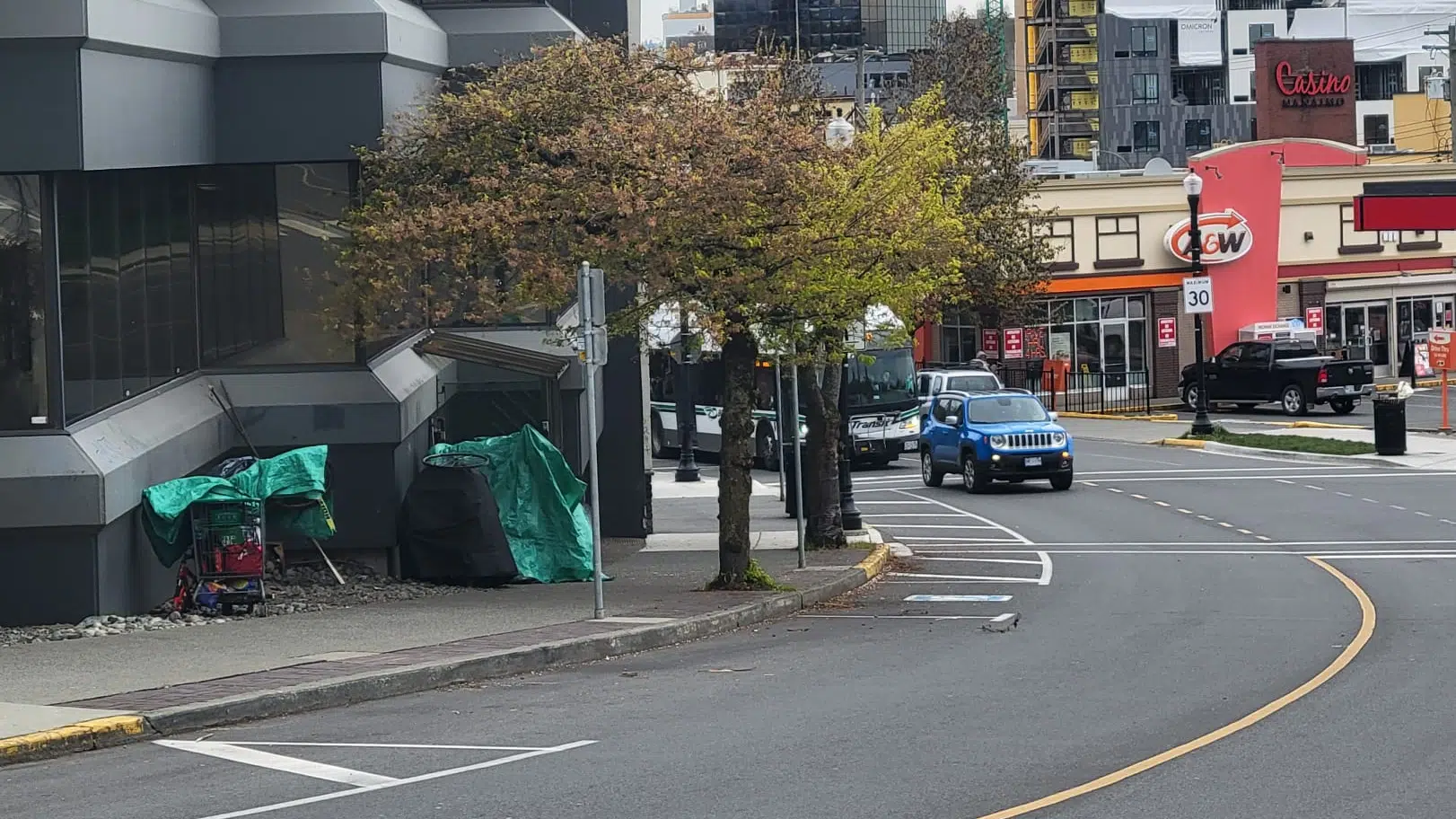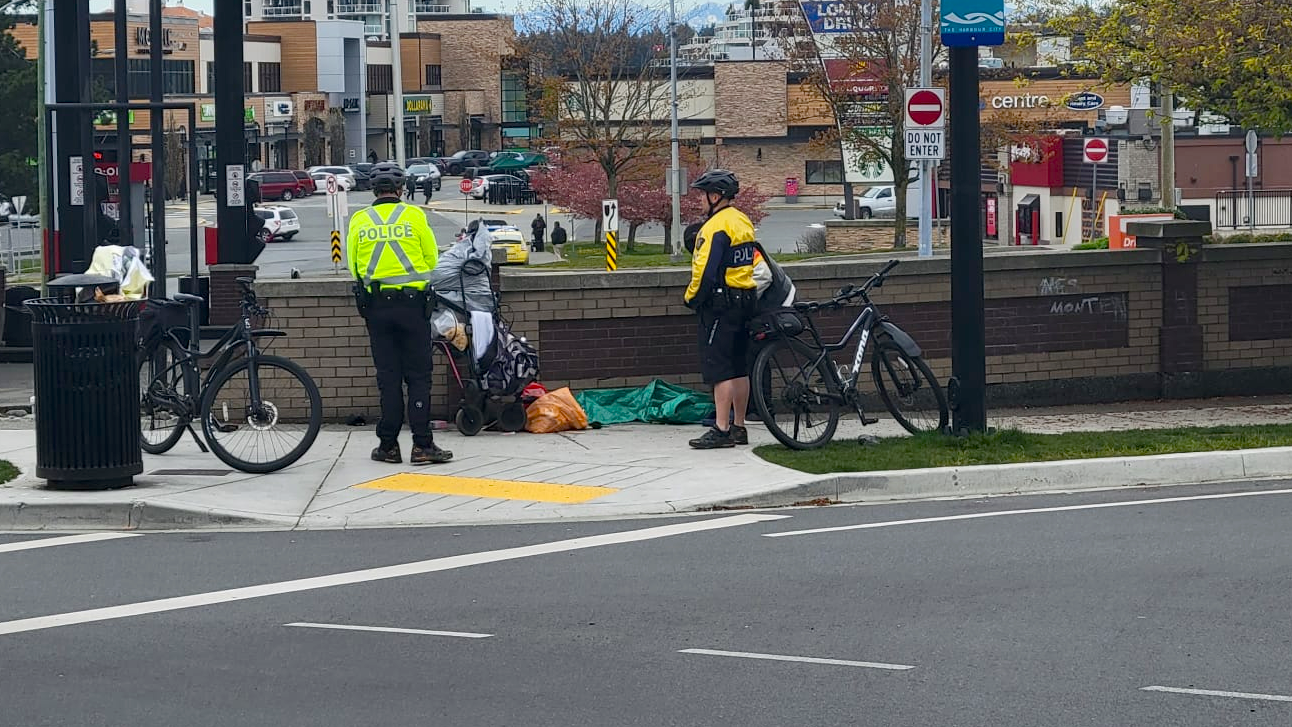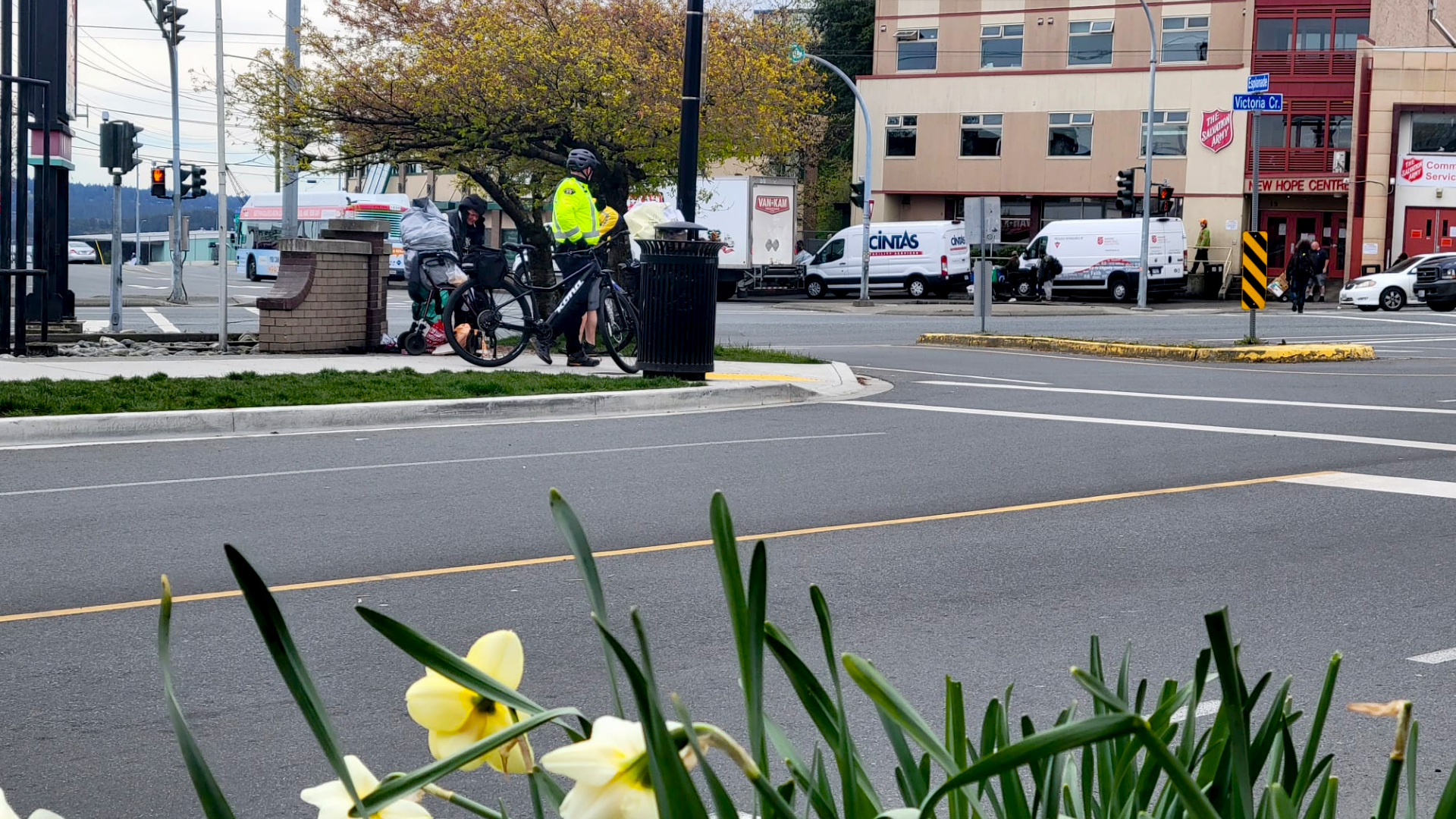
Nanaimo financing $2.5 million action plan for downtown safety and social disorder
NANAIMO — City councillors gave unanimous support for a new direction in battling growing safety and social disorder issues in the downtown core.
The Downtown Nanaimo Safety Action Plan, presented to councillors at their finance and audit committee meeting on Wednesday, April 20, calls for new and enhanced resources aimed at making the problematic downtown core a safer, more inviting place.
Mayor Leonard Krog called homelessness in Nanaimo and other communities around the province and country “a national embarrassment”.
“As we deal at the City level as best we can with 30-40 years of failed social policy that has left our city looking like the Downtown Eastside used to, way back when in many portions…has now become the sad norm in virtually every community.”





